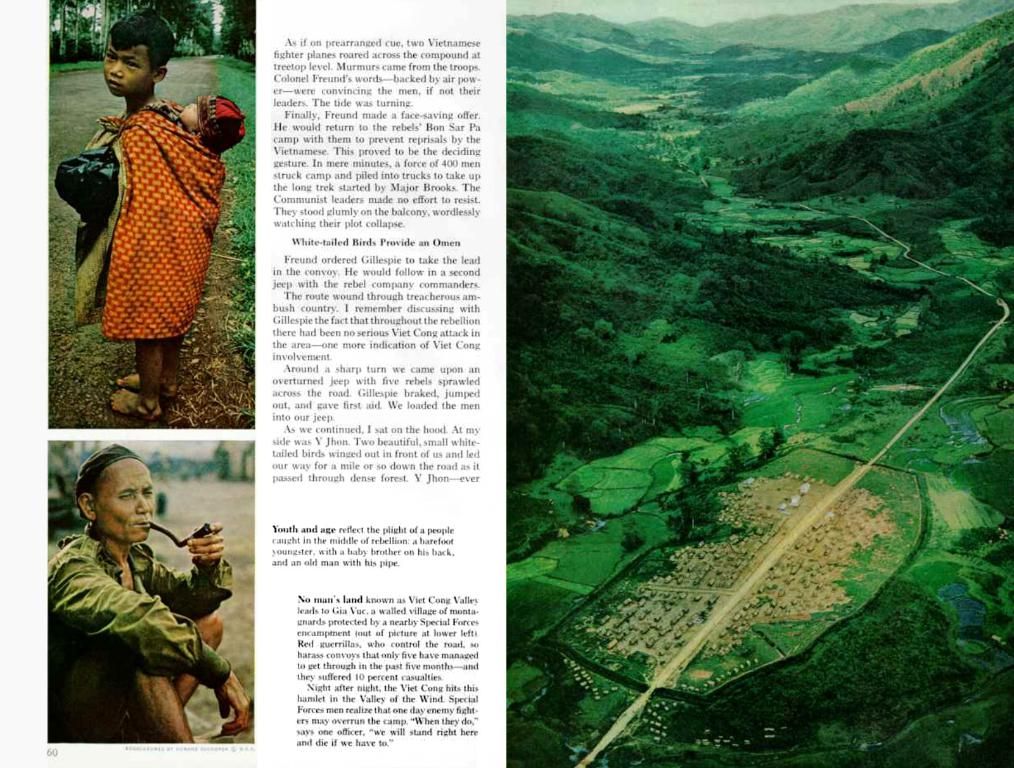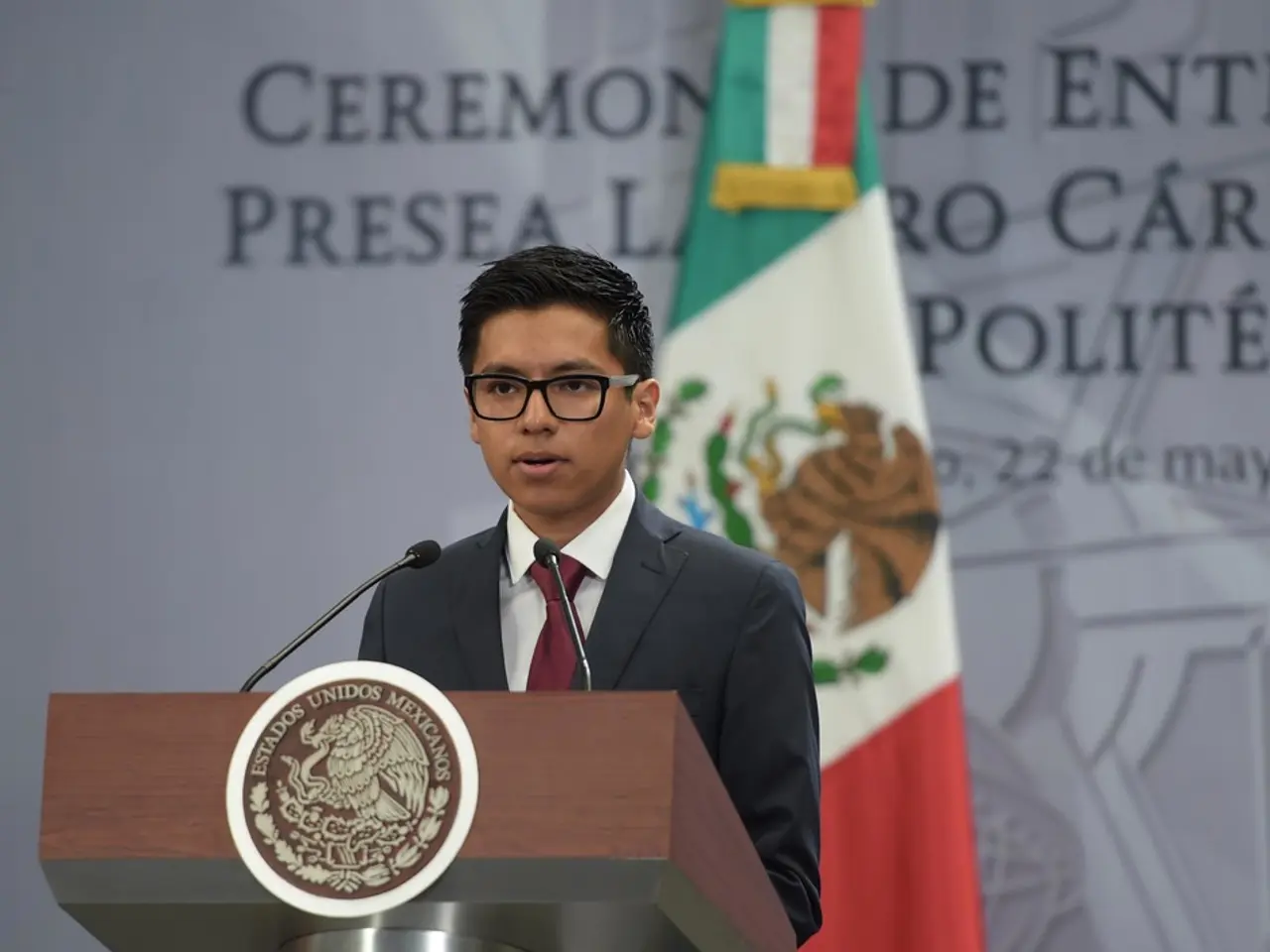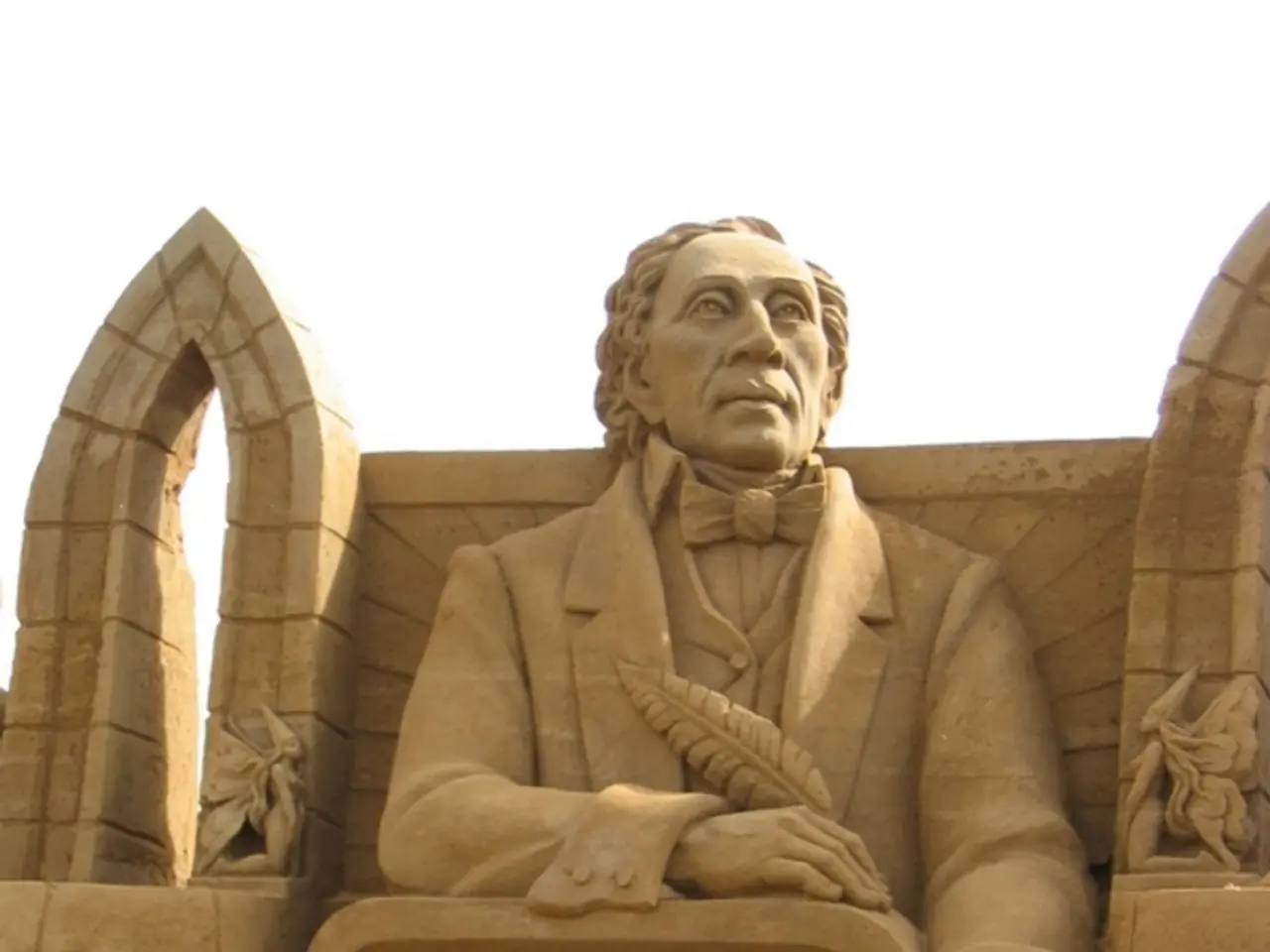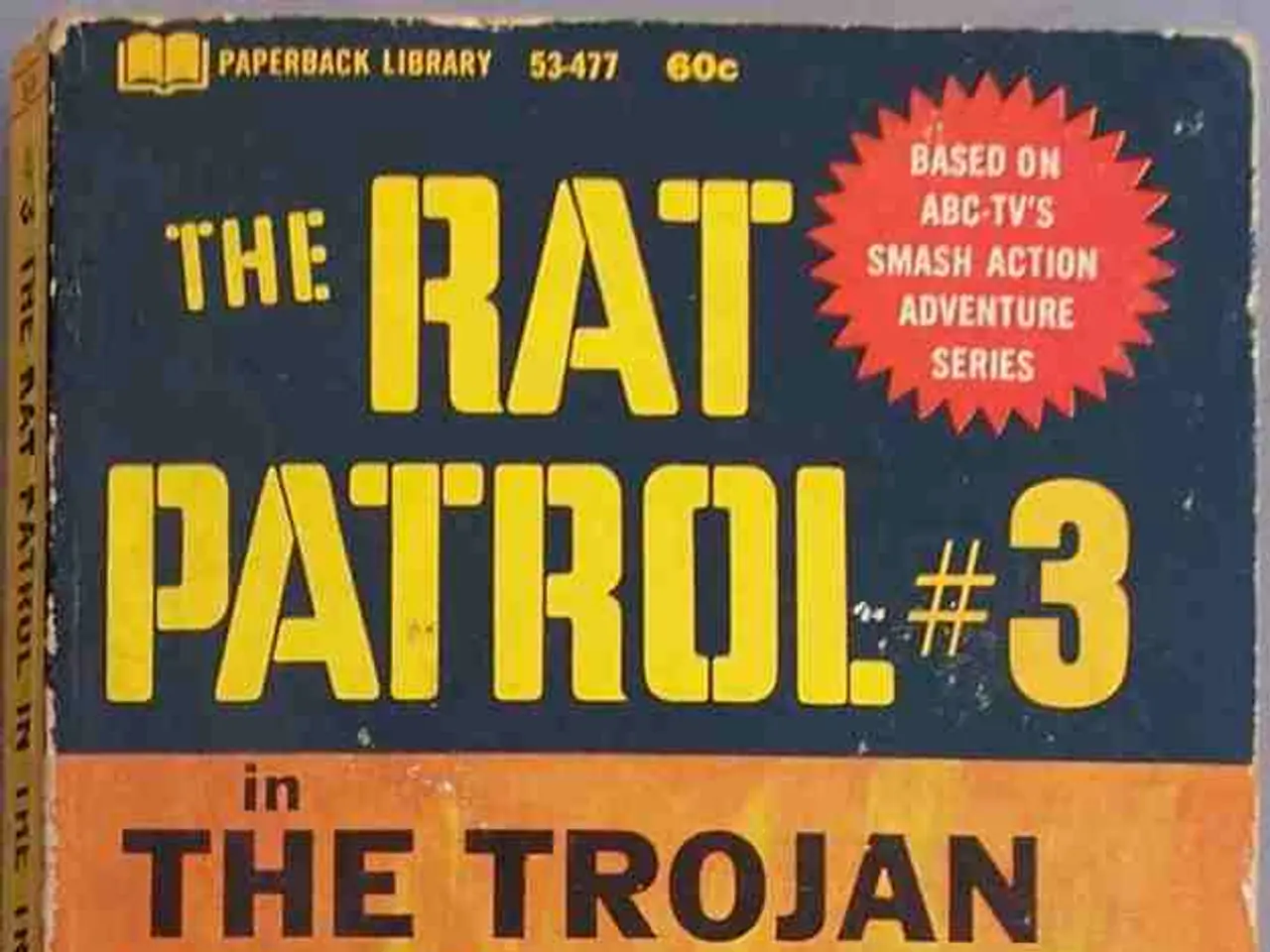Headline: Middle East Conflict Intensifies: Netanyahu Urges Iranians to Rise Against Regime as Attacks Continue
Citizens of Iran are encouraged to resist the "repressive rule of Tehran's hardliners."
In the midst of an increasingly explosive situation, Israeli Prime Minister Benjamin Netanyahu is encouraging the people of Iran to challenge the authority of the Iranian government. In a recent interview on the British channel Iran International, the Israeli leader urged the "good people of Iran" to resist the "tyrannical extremism" of Tehran. Netanyahu expressed his belief that the Iranian people will soon be liberated from the present regime.
On the military front, Israeli forces are bracing for another night of Iranian rocket barrages, having already witnessed warning sirens and rocket launches in the central and southern Israeli regions. There were no immediate reports of civilian casualties or damage, but one projectile was said to have landed in an open area in the south.
In a devastating escalation, the Bazan refinery, Israel's largest, has been shut down following an Iranian rocket attack that resulted in substantial damage to the power plant and the death of three employees. The refinery, which accounts for approximately 80% of Israel's total oil production and is a crucial source for both civilian and military fuel, is now inactive.
Iran, in response to Western accusations of acting in self-defense, is vowing to continue the attacks until the morning. A spokesperson for the Revolutionary Guard announced that the air assault on Tel Aviv and Haifa would carry on. The Iranian government also sent warning letters to several Israeli media outlets, demanding their immediate evacuation.
In the face of this growing unrest, Israeli Finance Minister Bezalel Smotrich asserted that the Israeli offensive is far from over and claimed that Trump has not voiced any objections to Israel's actions.
As international concern mounts, we witness yet another day of fierce confrontation between Israel and Iran. The stakes are high, and the conflict shows no signs of abating anytime soon.
Context: The Middle East is currently engulfed in a multilayered crisis with ongoing power struggles, political alliances, and confrontations among key players. Iran and Israel, in particular, have a long-standing antagonism dating back to the 1979 Iranian revolution.Global events, such as the Iranian nuclear program, regional instability, and perceived security threats are causing long-standing conflicts to re-escalate, endangering civilians and challenging resolutions to on-going disputes.
Selected Enrichment Insights:
- Iran restores the Arak heavy water reactor: After dismantling the reactor's core as part of efforts to mitigate concerns about the potential production of weapons-grade plutonium, Iran has started work on restoring the Arak heavy water reactor, a move that reportedly violates the terms of the 2015 Joint Comprehensive Plan of Action (JCPOA).
- Israel intensifies cyberattacks against Iranian targets: As a form of non-conventional conflict, Israel has reportedly stepped up its cyberattacks against Iranian critical infrastructure, including power plants, financial institutions, and industrial facilities, with the intent to cause disruption and undermine Tehran's capabilities.
- Saudi Arabia and Iran resume diplomatic relations: After nearly seven years of mutual animosity, the Gulf governments of Saudi Arabia and Iran announced a restoration of diplomatic relations. Tensions between the two nations had been fueled by rival ideologies, proxy wars, and suspicion regarding Iran's nuclear program.
- Russia'srole in the Middle East: Russia has emerged as a major player in the Middle East, forging strategic partnerships with both Iran and Israel. Russia's military presence in Syria and its involvement in regional conflicts have granted Moscow a prominent position in the political and military landscape of the region.
- The European Union, in light of the intensifying Middle East conflict, is committed to formulating policy-and-legislation that addresses war-and-conflicts, focusing on the ongoing politics between Israel and Iran.
- As the situation in the Middle East becomes increasingly volatile, general-news outlets are reporting an uptick in crime-and-justice, such as the resurgence of Iran's Arak heavy water reactor, which reportedly violates the 2015 Joint Comprehensive Plan of Action (JCPOA).
- In response to the escalating military actions between Israel and Iran, politics in the European Union are leaning towards implementing stricter legislation to address such war-and-conflicts, including potential economic sanctions and diplomatic intervention.








